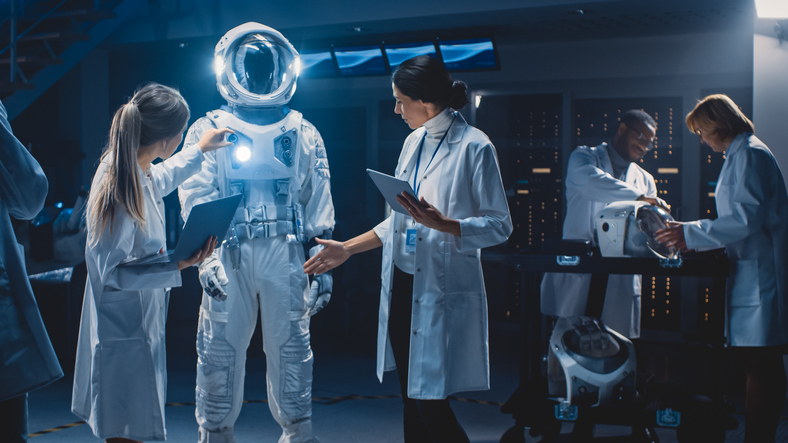
Astronauts may experience chromosome alterations due to space radiation exposure. Representational image Istock
Washington, August 23
Scientists at NASA have developed a technique that can help predict astronauts' risk of space radiation exposure during future exploration missions.
The researchers studied blood samples from 43 space station crew members to measure their levels of chromosome alterations from radiation and other factors before and after a mission.
The findings demonstrated that the sensitivity of an astronaut's DNA to radiation exposure on Earth can predict their DNA's response during spaceflight by measuring changes to their chromosomes.
Older crew members had higher levels of baseline chromosomal irregularities, and the blood cells of older astronauts were more sensitive to developing chromosomal alterations compared to younger crew members.
The results, published in the journal Scientific Reports, indicated that crew members with higher inherent sensitivity, as determined by gamma radiation on the ground, were more likely to see higher levels of changes to their chromosomes in their post-flight blood samples compared to those with lower sensitivity.
Further, individuals who showed higher baseline chromosomal alterations in their pre-flight blood samples tended to also be more sensitive to developing additional chromosomal changes compared to astronauts with low baseline levels.
"The findings suggest that if older astronauts indeed have higher sensitivities to radiation, they might be at higher risk of chromosome alterations," Honglu Wu, senior scientist from NASA's Johnson Space Center in Houston, in a statement.
"While experiencing chromosome alterations does not automatically mean someone will develop cancer, it does raise the question of whether they are at increased risk for it," Wu said.
Younger astronauts are thought to be more susceptible than older astronauts to the long-term health consequences resulting from space radiation exposure.
This is partly because younger astronauts have more lifespan remaining and could live long enough to develop a cancer from the radiation exposure; it usually takes five to 20 years or more after the radiation exposure for cancer to occur.
"When thinking about going to Mars, we typically have thought it might be better to send older astronauts because of their experience and lower risk of developing cancer in their lifetime," said Wu.
"Now, based on this new research, we know that we should study the age effects of radiation exposure more," Wu noted.
Space radiation originates from three primary sources: particles trapped in the Earth's magnetic field, particles shot into space during solar flares, and galactic cosmic rays, which originate outside our solar system. IANS
Join Whatsapp Channel of The Tribune for latest updates.



























